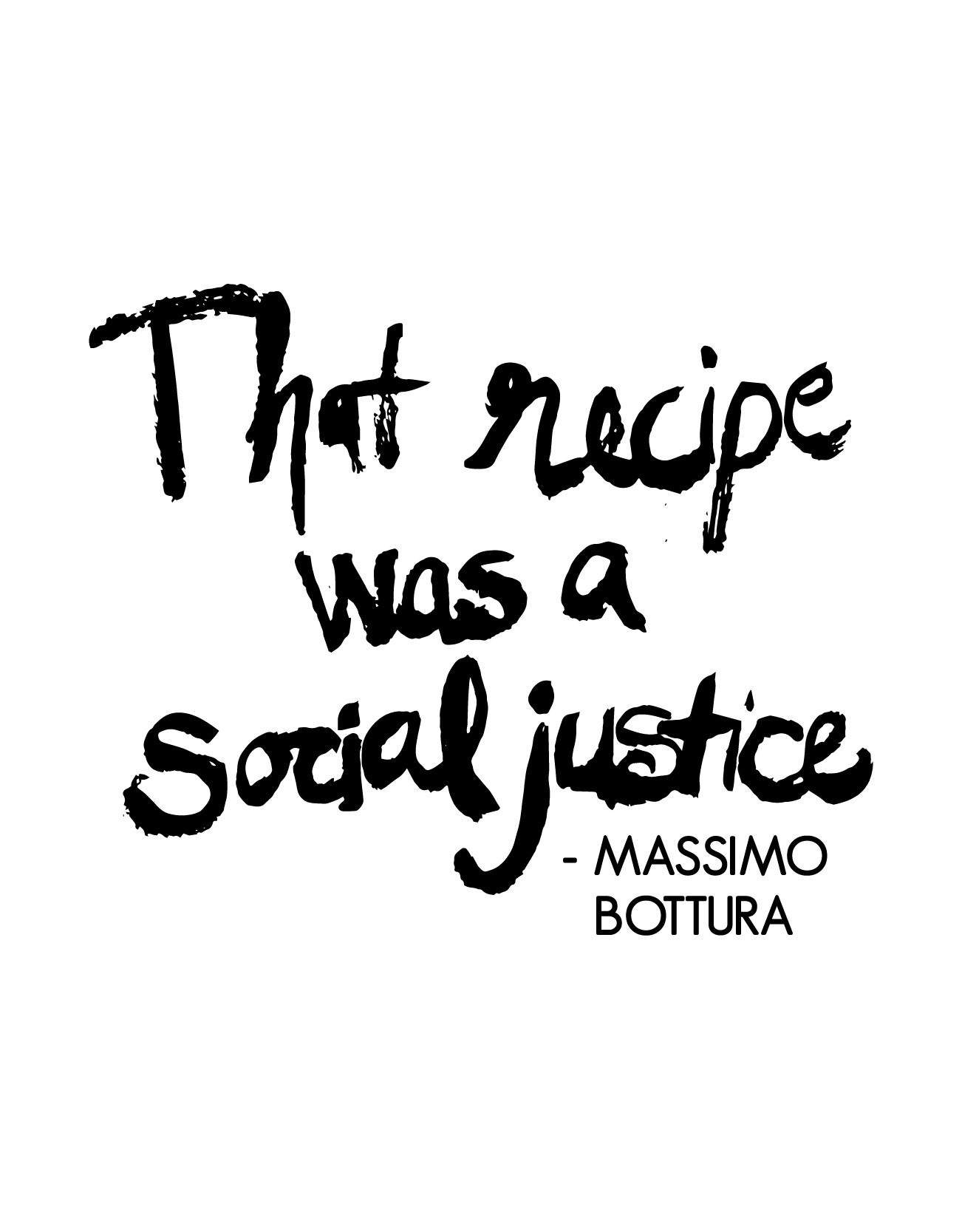A few nights ago I found myself on a Netflix binge (we’ve all been there), and happened upon the documentary series Chef’s Table. If you haven’t watched this series yet, I highly recommend it. Beautifully shot and well written, each episode will provoke new thoughts and strike a chord within you.
The first episode focuses on Massimo Bottura, a 3-star michelin chef from Modena, Italy. The show opens by highlighting a national disaster, an earthquake from May 20, 2012. Not only do you see the tremendous loss in this town, but the resilience of the people and incredible creativity. During the earthquake 360,000 wheels of parmigiano were cracked and damaged. Knowing the cheese needed to be sold quickly or the industry would face collapse, the consortium of cheese makers gathered and approached Bottura. His solution? Create a recipe that used parmigiano in large quantities and make it world renowned. Meet parmesan risotto or risotto cacao de pepe. Instead of cooking the rice in broth, he cooked it in large quantities of parmesan cheese. He wanted to show everyone what Modena could produce and help sell all of the damaged product. On one night 40,000 people were cooking the same dish world wide- risotto cacao de pepe. From Tokyo, to London, to New York, this dish was being served in top restaurants. No one in the cheese industry in Modena lost their jobs and all the cheese was sold out.
Massimo says, “That recipe was a social justice.”
As I heard this phrase, it resonated within me. Here was a guy who used his connections, experience, and creativity to save an industry in the middle of natural disaster. He did it through a single recipe. It has made me rethink my ideas of social justice. What if instead of large grandiose acts, social justice was brought about through the work of our hands and continued dedication in my craft. In the past I’ve looked at social justice in a limited scope- adoption, poverty, homelessness, education, fresh water, and the need to restore large systems. It meant trips to foreign countries, supporting people’s adoptions, working for nonprofit organizations, and joining marches for various causes.
While all of this is true and good, and provide solutions to these issues, what this chef reminded me of is it can look simpler as well- even in a plate of food. Now that I am in my late 20s, life looks a bit different. My nomadic life and living out of a suitcase is replaced by smaller traveling seasons. I live in the suburbs and a neighborhood. As a millennial, I still love fighting injustice and seeing compassion rise within me, but life is a lot more common. Common, but not boring. What if in these common moments it became more about choice? As a business owner and entrepreneur, what are the ways I right some societal wrongs in the way I live my life, the products I support, the clothes I wear, the food I eat, and the way I treat others? Maybe social justice is more about what I choose, where we place value, and honor than anything else.
How do you bring about social justice in your daily life? I’d love to hear from you! Leave your comments below.

